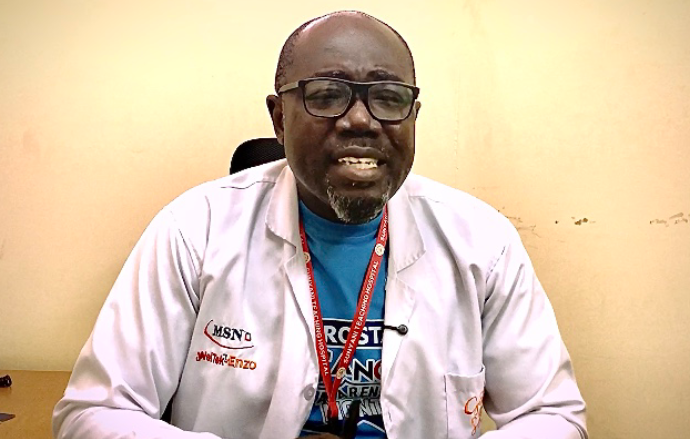The maiden prostate cancer screening campaign held at the Sunyani Teaching Hospital in the Bono Region of Ghana revealed a concerningly low turnout, raising alarms about men’s health awareness in the country. Despite offering free screening services, the five-day event, themed “Early Detection Saves Lives,” attracted only slightly over 200 participants. This underwhelming response underscores a critical need for intensified public education on prostate health, particularly given the disease’s prevalence and often silent progression. The low participation rate suggests a significant gap in understanding the importance of early detection and the potentially life-saving impact of timely intervention. Dr. Emmanuel Owusu-Sekyere, the urologist leading the screening exercise, expressed disappointment at the low turnout, highlighting the dangerous tendency of prostate cancer to develop asymptomatically until advanced stages.
Prostate cancer, often a silent predator, poses a significant threat to men’s health, especially in Ghana and across Africa. The disease frequently progresses without noticeable symptoms in its initial stages, making early detection through screening crucial. When symptoms do eventually appear, they might include frequent urination, the presence of blood in urine, and excessive urination at night, often indicating that the cancer has already progressed. Men aged 40 and above, particularly those with risk factors such as obesity, unhealthy diets, and sedentary lifestyles, are especially vulnerable. Addressing this challenge requires a multi-pronged approach, including expanding access to screening services, particularly in rural communities, and implementing comprehensive public awareness campaigns.
The gravity of the prostate cancer situation is underscored by statistics from the Global Cancer Observatory (GLOBOCAN 2022). Prostate cancer ranks as the most common cancer among Ghanaian men, accounting for a staggering 21% of all male cancer cases in 2022. With an age-standardized incidence rate of approximately 30 cases per 100,000 men, it surpasses all other cancers affecting Ghanaian males. This high incidence rate aligns with the broader trend across Africa, where prostate cancer is also the most frequently diagnosed cancer in men, with an average incidence of 22 new cases per 100,000. These figures highlight the urgent need for increased awareness, accessible screening programs, and effective treatment options to combat this growing health concern.
The low turnout at the Sunyani screening event reflects a broader issue of limited health-seeking behavior among men, potentially rooted in cultural factors, lack of awareness, and limited access to healthcare services. Overcoming this challenge requires a collaborative effort involving government agencies, healthcare providers, community leaders, and NGOs. Expanding screening programs to reach underserved populations, particularly in rural areas, is crucial. Financial barriers to accessing these services must also be addressed to ensure that cost does not deter men from seeking potentially life-saving early detection.
Dr. Owusu-Sekyere’s appeal for support from traditional leaders, NGOs, corporate bodies, and philanthropists highlights the importance of community engagement in raising awareness and promoting proactive health-seeking behavior. Traditional leaders, holding significant influence within their communities, can play a crucial role in disseminating information and encouraging men to participate in screening programs. NGOs and corporate bodies can contribute resources and expertise to support public education campaigns. Philanthropic organizations can provide funding for screening initiatives and research. A concerted effort from these stakeholders is vital to achieve widespread behavioral change and improve prostate cancer outcomes.
The global perspective on prostate cancer further emphasizes the urgency of the situation. With over 1.4 million new cases annually worldwide, the disease poses a substantial threat to men’s health globally. Projections indicate a potential doubling of this figure by 2040, with a particularly sharp rise in deaths anticipated in sub-Saharan Africa and other low- and middle-income regions. This alarming trend underscores the need for a global commitment to improving prostate cancer prevention, detection, and treatment. Public health specialists continue to emphasize the life-saving potential of early detection. Regular screening for men over 40, coupled with healthier lifestyle choices such as adopting balanced diets and engaging in regular physical activity, are crucial. Intensified community education campaigns are essential to raise awareness, dispel misconceptions, and encourage men to prioritize their prostate health. A comprehensive and collaborative approach is necessary to effectively combat this growing health challenge and improve outcomes for men in Ghana and around the world.














